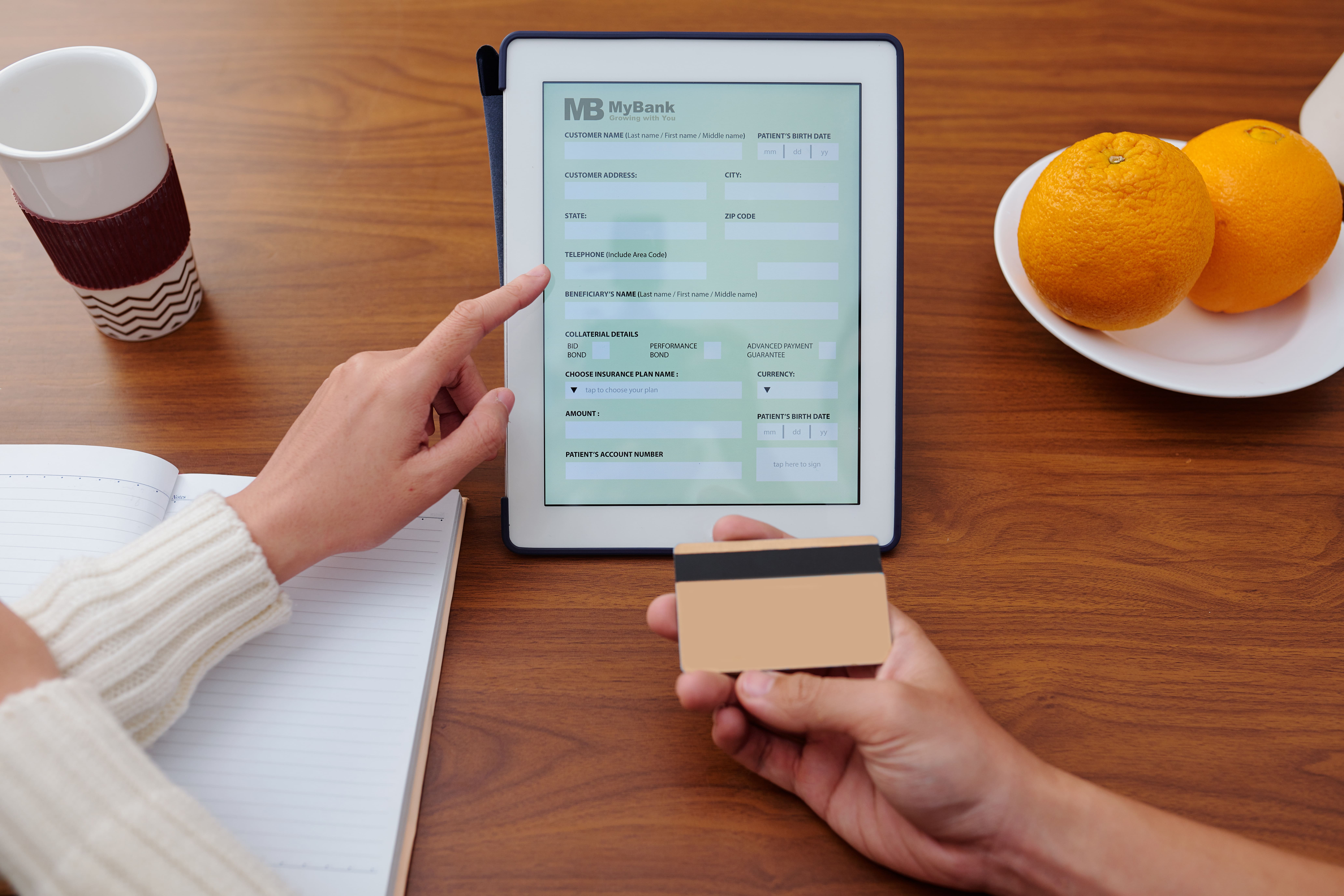As a landlord or real estate investor, managing multiple rental properties brings unique complexities, especially when it comes to security deposits. Mishandling these funds can lead to significant legal issues, financial penalties, and strained tenant relationships.
This comprehensive guide will equip you with the knowledge and strategies to compliantly and efficiently manage multiple security deposits in 2025.
Key takeaways
- Understand federal and state-specific security deposit laws, including 2025 updates like California's AB12.
- Always specify deposit terms clearly in lease agreements and provide detailed receipts to tenants.
- Segregate security deposits into separate bank or escrow accounts to ensure legal compliance.
- Implement robust tracking systems for each property and tenant, especially for co-tenancy and additional deposits.
- Conduct thorough move-in and move-out inspections with detailed documentation to justify any security deposit deductions.
- Leverage property management software and dedicated banking solutions to automate and streamline deposit management.
What is a security deposit for landlords?
A security deposit is a sum of money a tenant pays to a landlord at the start of a lease. Its primary purpose is to cover potential damages beyond normal wear and tear, unpaid rent, or other breaches of the lease agreement. Landlords collect these deposits to protect their investment and ensure they have funds available if a tenant defaults on their obligations.
The amount you can charge for a security deposit varies significantly by state and local regulations. While some states have no caps, others strictly limit the amount to one or two months' rent. For detailed guidance on how much a security deposit you can charge, it is crucial to consult local laws.
Factors influencing the deposit amount often include the tenant's credit score, background check results, and the type of property. These deposits are generally refundable, but only after permissible deductions are made for damages or unpaid rent. For a comprehensive overview of how to determine a security deposit, thorough research is key.
Federal & state laws for security deposits in 2025
While there’s no single federal law setting limits or deadlines, federal rules like the Fair Housing Act and Fair Credit Reporting Act shape how landlords screen tenants before collecting deposits. The real requirements, however, come from state and local governments.
State laws generally regulate various aspects of security deposits, including the maximum amount a landlord can collect, the required holding location for these funds, whether interest accrues, and the timeframe for their return. Deadlines usually fall within 15 to 30 days, and penalties for violations can be steep—often double or triple the deposit, plus legal fees.
For example, in California, AB 12 now caps security deposits at one month’s rent for most properties, a major change aimed at reducing tenant costs. Florida still has no statewide cap, though landlords often collect one to two months’ rent.
Interest isn’t required unless deposits are placed in an interest-bearing account, in which case specific rules apply. Meanwhile, states like Massachusetts, Maryland, and Connecticut set their own security deposit interest rates, and cities such as Chicago and San Francisco publish annual rates that landlords must follow.
How to hold and manage multiple security deposits
Properly handling tenant security deposits is a critical aspect of being a landlord, and it's a major compliance point. Mixing tenant funds with your personal or operating capital (a practice called commingling) is a significant risk that can lead to fines and legal action in many states.
To protect your personal assets and ensure compliance as you grow your portfolio, you need a clear, reliable system for managing every single deposit.
Compliance check: Escrow vs. dedicated accounts
The first step in managing multiple security deposits is understanding your state’s rules on where the money must be held. This often falls into two main categories:
You must consult local state and municipal laws to confirm the exact type of account required (Escrow or Dedicated) and if it needs to be interest-bearing. For detailed instructions, refer to how to open an escrow account for security deposits
The organizational solution: Separate accounts for scale
Managing a growing portfolio means juggling deposits for multiple properties and multiple tenants, which makes using one single account nearly impossible to track accurately.
The best practice for managing multiple security deposits is to set up a structure that gives each deposit its own clear place.
- Separate by property or unit: Once you know the legally required account type, the challenge becomes organization. Even for a single entity, opening a separate sub-account for each property, or even each tenant's security deposit, dramatically simplifies financial tracking.
- Prevent overdrafts and commingling: This level of separation ensures funds for one property's security deposit can't accidentally cover an expense or repair on another. It clearly isolates the tenants' money from your operational rent income.
For large and growing portfolios, managing this many accounts with a traditional bank becomes a huge headache of fees and manual tracking.
We built Baselane banking platform to solve this problem. Open unlimited checking and savings accounts per property, per unit, and for security deposits—all with no monthly fees. You can seamlessly use our high-yield savings accounts to hold deposits and earn competitive interest, helping you meet any interest-bearing requirements in your state.
Accounting and tax: Proper financial treatment
A common financial mistake landlords make is treating the security deposit as immediate rental income. Understanding the correct accounting treatment is vital for financial accuracy and tax time.
- It's a liability, not income: Until the lease ends, a security deposit is a liability on your balance sheet because you generally intend to return it. It is not considered rental income by the IRS if it's meant to be returned.
- When it becomes taxable income: Any portion of the deposit you withhold at the end of the lease—whether for property damages, cleaning fees beyond normal wear and tear, or as a final rent payment—only becomes taxable rental income in the year it is applied and kept.
- Simplified tracking is key: When you have numerous properties, manually logging which deposit belongs to which tenant and tracking the corresponding deductions is an immense administrative burden.
Baselane's bookkeeping is integrated with our banking to save you those hours of busywork. When you use a Baselane account for deposits, every transaction—including the initial deposit and any final deduction—is auto-tagged to the correct property and Schedule E tax category. This gives you an instant, auditable record of every deposit across your entire portfolio and helps your accountant at tax time.
How to return security deposits to multiple tenants
Returning security deposits to multiple tenants can feel overwhelming, but following a clear process helps you stay compliant and avoid disputes. Every step matters, from inspections to documentation and timely refunds.
1. Conduct thorough move-out inspections
Start by inspecting each unit carefully. A move-out inspection establishes the condition of the property and forms the basis for any deductions. The key is distinguishing between normal wear and tear (which cannot be deducted) and tenant-caused damage (which can). Common deductible items include unpaid rent, excessive cleaning costs, and repairs for damages beyond regular use.
2. Document everything
Strong documentation is your best protection against disputes. Take dated photos and videos before and after each tenancy. Write detailed inspection reports that clearly describe any damages. These records provide evidence if tenants challenge your deductions later.
3. Prepare a security deposit return letter
Once deductions are determined, draft a formal security deposit return letter. This should outline:
- The original deposit amount
- Any deductions with explanations
- The remaining refund balance
In some states, you may also need to provide a disposition form, which shows exactly how funds were allocated.
4. Follow state timelines
Deposit return deadlines are set by state law, usually between 14 and 60 days after the lease ends. Missing these deadlines can result in penalties, including double or triple damages. Always track your state’s requirements closely.
5. Handle disputes with clear records
If tenants challenge your deductions, your inspection notes, photos, and videos become your strongest defense. Transparent communication and detailed documentation not only help resolve disputes but also show good faith if the matter escalates legally.
Best practices to collect security deposits across multiple properties and tenants
Collecting security deposits for multiple units in a compliant and effective manner is the first step in successful management. Here's how to ensure proper handling:
- Create a precise lease agreement: Clearly outline the security deposit amount, its purpose, and the conditions for its return in the lease. This is crucial when managing multiple tenants or properties.
- Utilize secure payment methods: Employ secure methods for collecting deposits, safeguarding both you and your tenant. Electronic transfers are often preferred for their traceability and convenience.
- Always provide proof of payment: When collecting any deposit, issue a security deposit receipt to your tenants. This is frequently a legal requirement and serves as confirmation of the amount, date, and property address.
- Establish liability terms: For co-tenants, clearly define whether liability for the security deposit is shared or individual. Shared liability holds all tenants responsible for the full deposit, while individual liability can complicate deductions if only one tenant causes damage.
Manage and organize security deposit with Baselane
Being a landlord is challenging, but managing security deposits doesn't have to be.
With Baselane, you get:
- Unlimited virtual accounts for every property and security deposit with no monthly fees.
- Integrated bookkeeping that auto-tags deposits to the correct property for effortless tax reporting.
- The clarity and control you need to stay compliant with state laws and scale your rental business.
Get started for free today and see how simple managing your rental property finances can be.
FAQs
What is a security deposit, and why do landlords collect them?
A security deposit is money paid by a tenant to cover potential damages, unpaid rent, or lease violations. Landlords with multiple units collect them to protect their investment and ensure funds are available if a tenant breaches the lease.
Are there new security deposit laws in 2025 that landlords should know about?
Yes, regulations can change annually. For instance, California's AB12, effective July 2024, limits security deposits to one month's rent for most properties.
How should landlords manage multiple security deposits from different properties or co-tenants?
Landlords should segregate each security deposit into separate bank or escrow accounts, ideally with sub-accounts per property or tenant. Using specialized software can automate tracking and ensure compliance across a portfolio.
What are the consequences of mishandling security deposits?
Mismanaging security deposits can lead to severe penalties, including fines, mandatory reimbursements—potentially double or triple the deposit amount—and liability for the tenant's legal fees.
How does technology help manage multiple security deposits?
Technology, such as property management software or dedicated banking solutions like Baselane, centralizes tracking, automates transaction categorization, and helps ensure compliance.

















